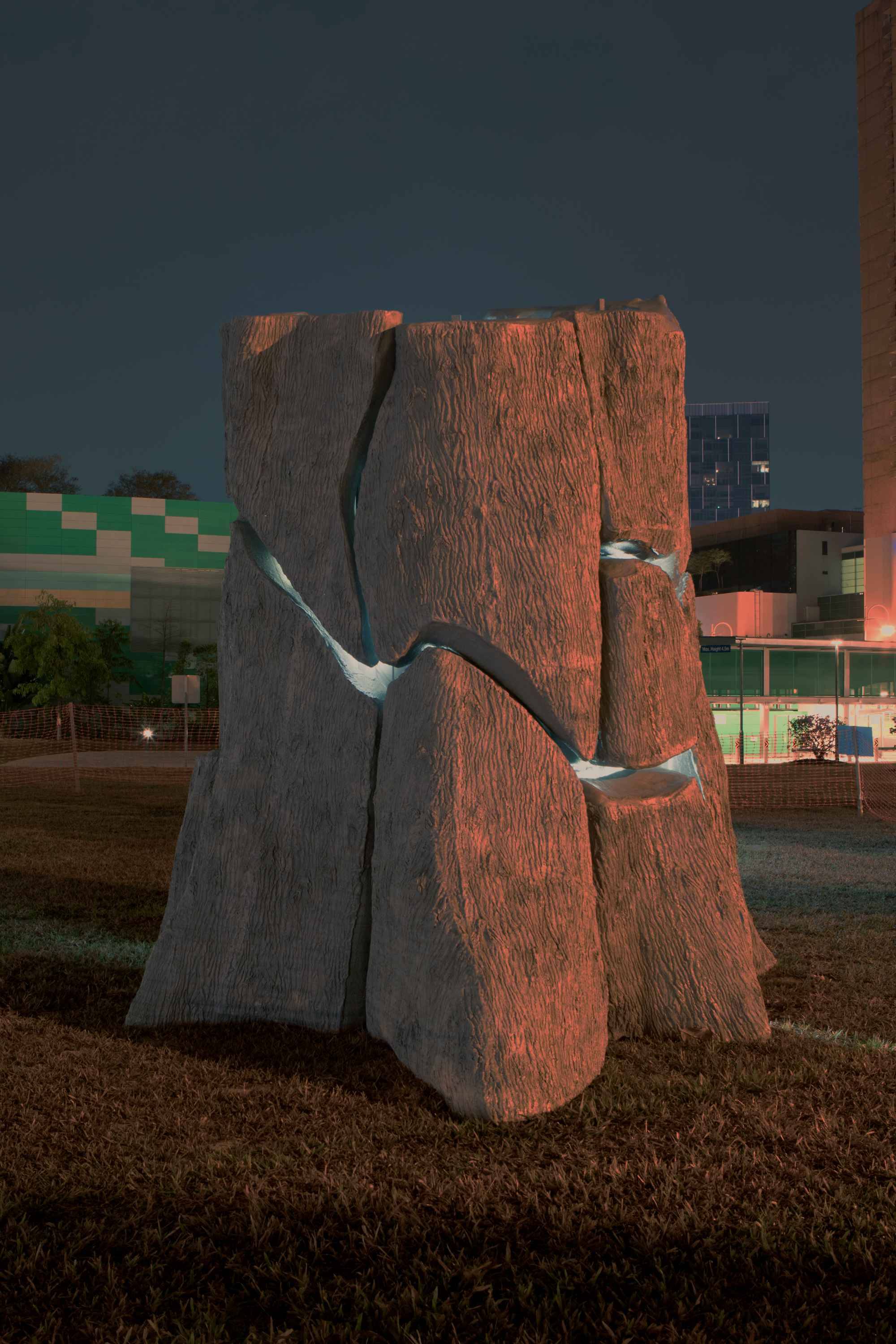SINGAPORE: If you are visiting East Coast Park, look out for a 4m-high sculpture of a giant body with many faces.
Called Crossing Shores, it was one of two artworks unveiled on Wednesday (Aug 28) to commemorate Singapore’s bicentennial.
The second artwork is a 3D-printed installation called The Time Tree, featuring a giant tree stump and a fallen part of the tree.
“As we commemorate Singapore’s bicentennial, the launch of these new public art will help showcase the different facets of our Singapore Story while revitalising public spaces around Singapore,” said Minister for Culture, Community and Youth Grace Fu.
CROSSING SHORES
The sculpture Crossing Shores, with its many faces, pays homage to the diversity of early migrants who crossed Singapore’s shores in search of better futures and made Singapore their home, said the National Arts Council (NAC) in a media release.
“Set against the backdrop of the sea at East Coast Park, in a space that many Singaporeans have shared memories of, the artwork serves to remind us of how a nation of diverse faces from different lands worked together to build a home, and calls for stronger social integration in contemporary times,” it added.
The sculpture was created by Singaporean artist Farizwan Fajari, professionally known as Speak Cryptic.
Minister Grace Fu and students from a PCF Sparkletots pre-school at the launch of Crossing Shores at East Coast Park. (Photo: NAC)
THE TIME TREE
The Time Tree by Robert Zhao imagines what a tree older than 200 years might look like in Singapore, and is modelled after the dimensions of the Changi Tree – Singapore’s tallest tree recorded which stood at about 76.2m. It was also the tree which the British feared would serve as a ranging point for enemy artillery during World War II.
The Time Tree by Robert Zhao will be displayed at three public sites starting with Fort Canning Park. (Photo: Robert Zhao)
The artwork, which lights up at night, is one of the largest 3D-printed public art installation in Singapore, said NAC.
“The age of the imagined tree, beyond the 200 years of Singapore’s bicentenary, is an acknowledgement of Singapore’s pre-modern history and the plurality of narratives that go beyond the colonial era – reflecting the tenacity and resilience of Singapore, and the myriad of possibilities in imagining a nation through the lens of natural history,” it added.
The installation will be displayed at three public sites, starting with Fort Canning Park this month before moving to Jurong Lake Gardens in November and finally at Raffles Place Central Square in January.
Robert Zhao’s installation The Time Tree illuminates at night. (Photo: Robert Zhao)

Robert Zhao’s installation The Time Tree illuminates at night. (Photo: Robert Zhao)
“The challenge put forth to the commissioned artists was not only to push their artistic boundaries and further their craft through a different medium, but to also draw reference from bicentennial themes such as multi-culturalism, openness and self-determination to commemorate this historical milestone,” said NAC’s chief executive Rosa Daniel.
“We are confident the public artworks will enliven community sites, stimulate imaginations and delight visitors of all ages with their sense of play.”
The artworks were commissioned by the Public Art Trust, an initiative by NAC.
A third artwork will be launched in Punggol in November.




